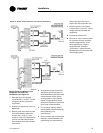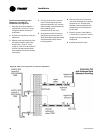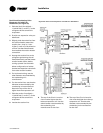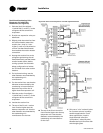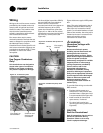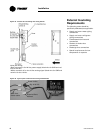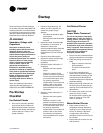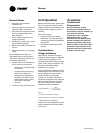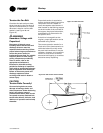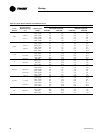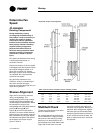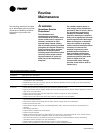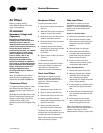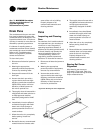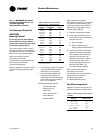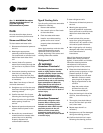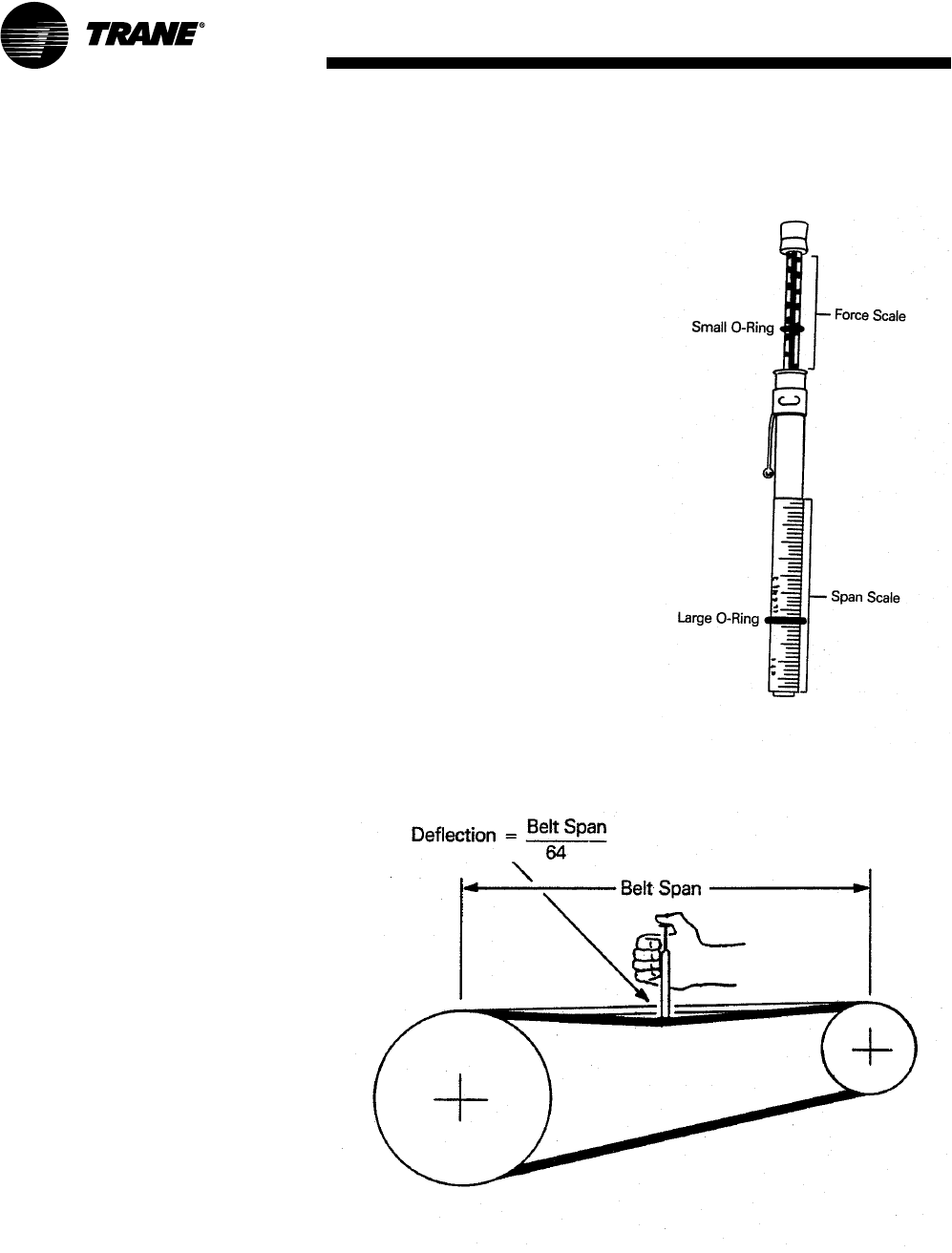
Startup
CAH-SVX01A-EN 45
Tension the Fan Belt
Check the fan belt tension at least
three times during the first days of
operation because there is a rapid
decrease in tension until the belt
settles in (see Figure 46 and
Figure 47).
ƽ WARNING
Hazardous Voltage with
Capacitors!
Disconnect all electric power,
including remote disconnects and
discharge all motor start/run
capacitors before servicing. Follow
proper lockout/tagout procedures to
ensure the power cannot be
inadvertently energized. For variable
frequency drives or other energy
storing components provided by
Trane or others, refer to the
appropriate manufacturer’s
literature for allowable waiting
periods for discharge of capacitors.
Verify with an appropriate voltmeter
that all capacitors have discharged.
Failure to disconnect power and
discharge capacitors before
servicing could result in death or
serious injury.
CAUTION
Tension Belts Correctly!
Over-tensioning belts can cause
damage to bearings, shafts, and
drive components. Under tensioning
belts is the primary cause of
premature belt failure. Belts should
not squeal at startup. Recheck belt
tension after 8 hours, 24 hours, and
100 hours of operation and monthly
thereafter.
Proper belt tension is required to
ensure maximum bearing and drive
component life and is based on
motor horsepower requirement. A
label located on the bearing support
on the drive side of the unit lists all
drive parts, the proper belt tension,
and deflection for that tension for
the specific drive.
If the drive is changed from the
original, proper belt tension can be
estimated using Table 3.
The correct operation tension for a
V-belt drive is the lowest tension at
which the belts will not slip under
the peak load conditions. It may be
necessary, however, to increase the
tension of some drives to reduce
excessive belt flopping or to reduce
excessive startup squealing.
Figure 46. Belt tension measurement
Figure 47. Belt tensioner



